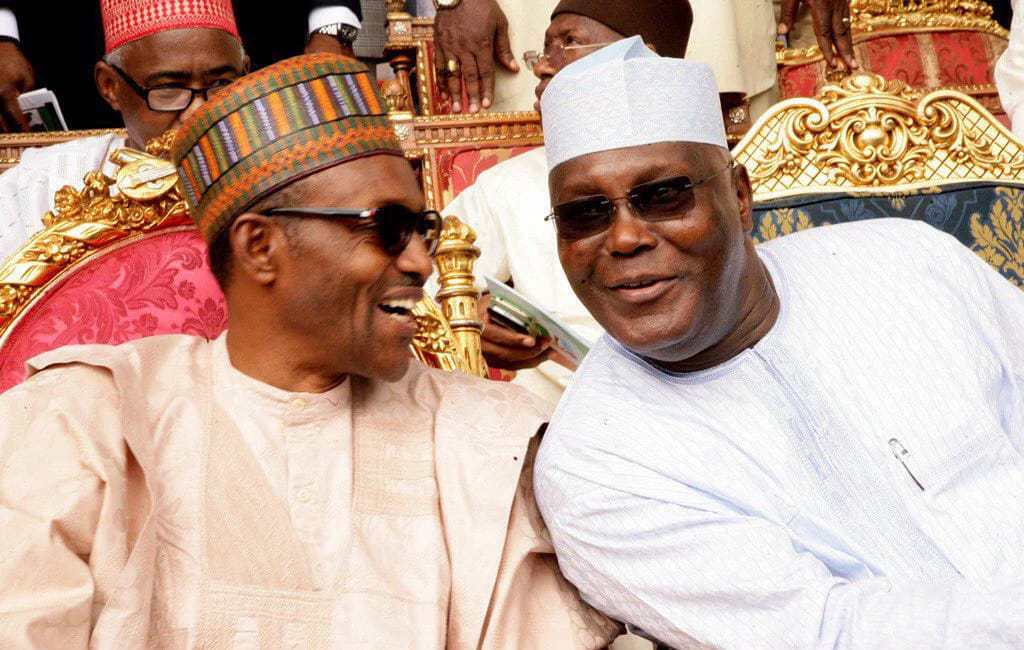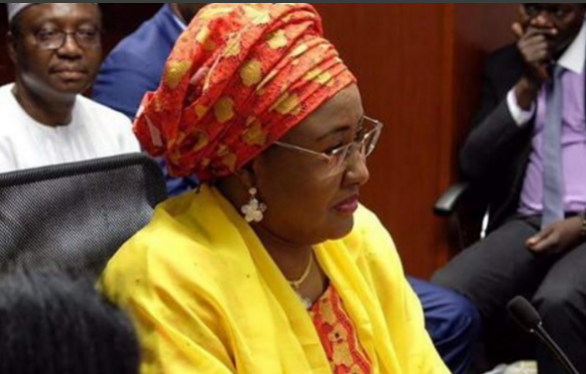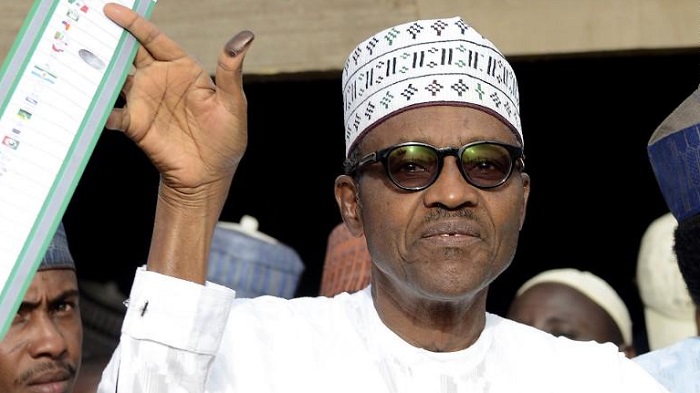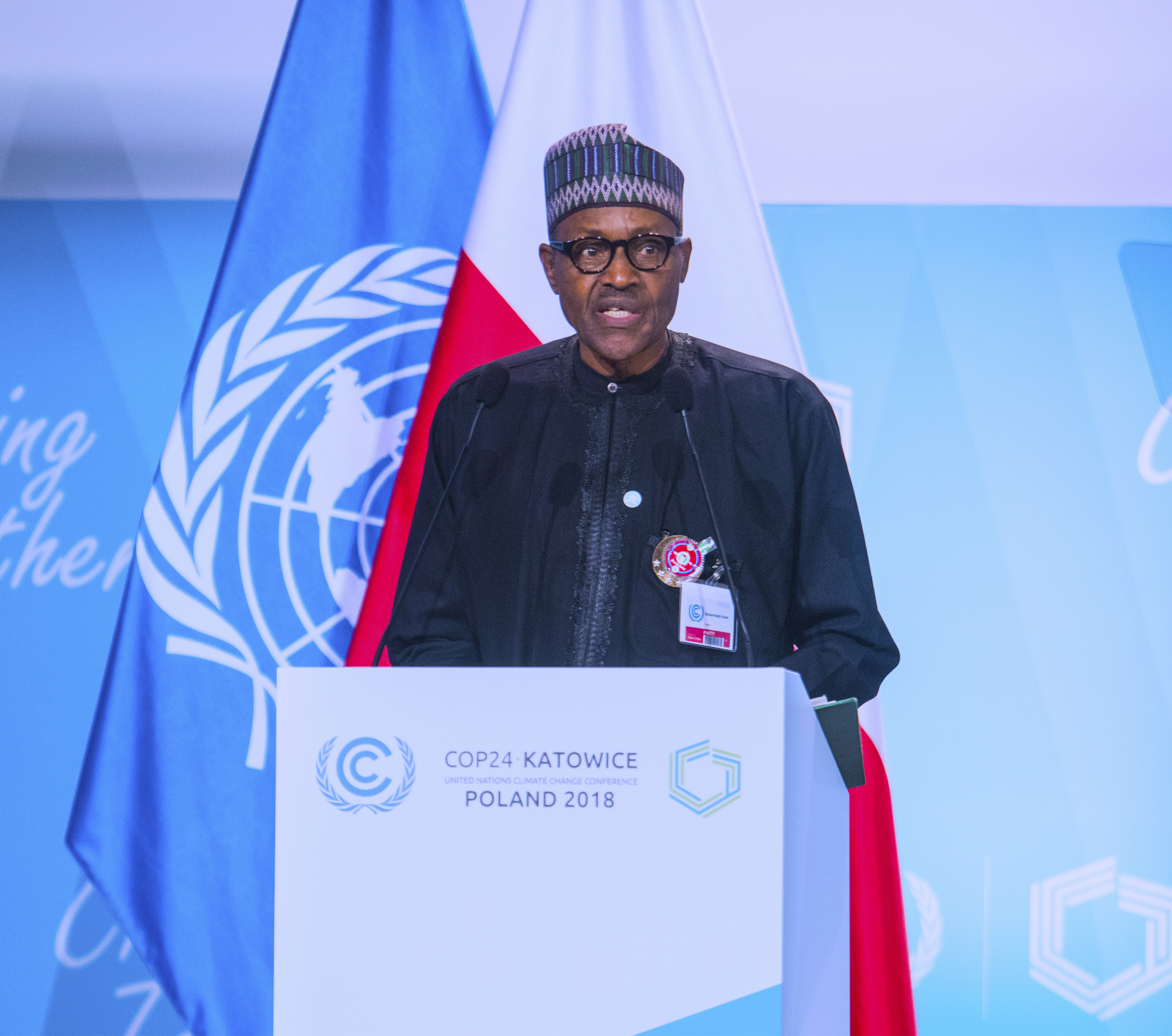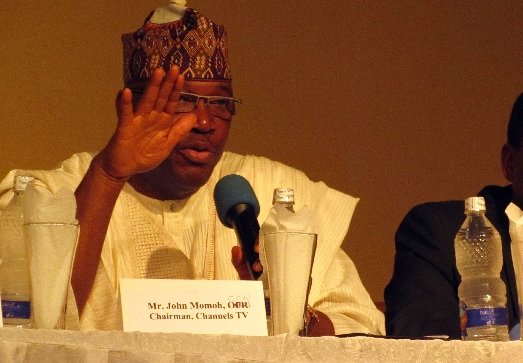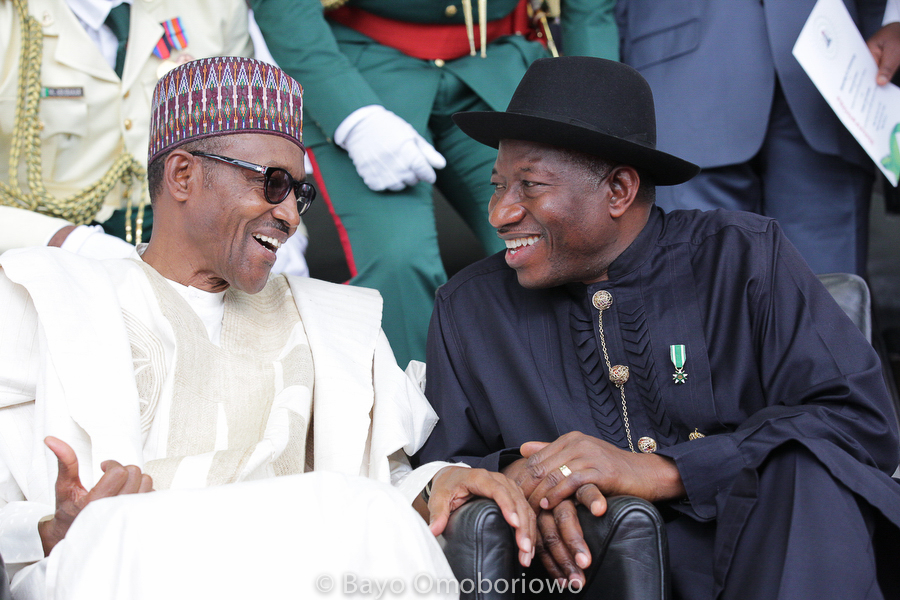In an election season in which a president whose interrogation of the body politic has not only brought an upset to the applecart, but whose actions has also resulted into a tectonic shift in the dominant governance paradigm—-and seeking re-election—-it is not inconceivable that a few but very powerful segment of the society that has maintained a collective vice grip on the polity and their acolytes to be up in arms. It is also to be expected that his actions, which has brought a revolutionary subversion of this dominant paradigm at critical junctures of our national life would be vigorously resisted this time around by any means necessary, including the weaving of grandiose narratives—–some of which are already quite bizarre—–in order to checkmate his electoral chances and, by extension, attempts would be made to damage some of the key members of his administration for the sole purpose of creating the false impression among voters that the emperor has no shirt after all. This is precisely where Ms. Abimbola Adelakun should be situated.
A columnist with The Punch newspaper, Adelakun unabashedly excoriated two of the leading lights from the Southwest geo-political region in a piece on Thursday, November 29, 2018 which she titled “Fashola, and the engineer of Yoruba consent.” For starters, Adelakun, from her vantage point as a columnist in one of the nation’s important newspaper publications, have never seen anything good or noble about President Muhammadu Buhari to write the Nigerian nation about, let alone the ruling All Progressives Party (APC) that one cannot help but wonder if she’s not too far gone in what seems to be some sort of pathological disdain of the Nigerian president, which some erroneously termed as her having independent and refreshing thoughts on issues of national importance. So, when she unleashed caustic and underserved adjectives and phrases on the duo of Mr. Babatunde Raji Fashola (SAN), Minister of Power, Works and Housing and Dr. John Kayode Fayemi, the new governor of Ekiti State, it was hardly surprising.
Adelakun, in the recent past, had been hopelessly irked by what the APC stands for and against. But in the column under reference, she apparently couldn’t stand Fashola’s audacity to have enjoined his Yoruba people to look in the direction of President Buhari when casting their votes in the February 2019 presidential election. The Minister, in his recent outing to present the scorecard of the Buhari government, he had admonished his people to look at the coming presidential election not only in terms of the significant presence of people from their ethnic stock at the centre, but also in terms of the social and infrastructural benefits (some of which are quite unprecedented) that accrued to the geo-political region—-all made possible by their votes. What’s more, Adelakun found Fashola’s reminder to the Yoruba of the real possibility that the region could produce the country’s president in 2023 if they support Buhari in 2019 as they did in 2015 so repugnant that she was oblivious of the many times she approbated and reprobated in her excoriation of the minister. A columnist could not have been any more pathologically disdainful than that.
One cannot help but also wonder about the necessity, if not the desirability of this piece when, in her introductory paragraph, she admitted that the APC and its politicians are not doing “anything unique” in their marketing strategy in order to boost their electoral victory over their opponents. Hear her: “In all climes, politics boils down to optics of shared identity and its instrumentalization towards accessing power. When shorn of hyperbole, no group of people anywhere votes individually. Citizens vote as a herd, congregating around biases that interlink history, contemporary anxieties, and prejudices…and that is why politicians trust voting blocs to deliver votes for them.” So, if Adelakun believes that identity politics is one of those legitimate campaign instruments with which politicians around the world readily deploys not only to maximize their electoral chances but to access power, it beggars belief why The Punch columnist thought it fit and appropriate to crucify Fashola for appealing and reminding his people of both the macro and micro socio-economic benefits that were garnered for the region and its people by virtue of their bloc votes for President Buhari in 2015. Someone couldn’t have been more confused than this.
Advertisement
Adelakun’s assertion that “Babatunde Fashola, the former poster boy for progressive ideologies(sic) and the most hyped public administrator of all time, has morphed into a right-wing apologist” was nothing but a pathologically jaundiced, vacuous assessment of the minister not only because of her failure to provide proofs but also that there was no basis whatsoever for this assertion. While it may be pointless to educate Adelakun here on her erroneous use of words, adjectives and phrases (for she knows exactly what she’s doing) as exemplified in the aforementioned statement (and at other subsequent junctures in the column) to question both the ideological inclination and administrative acumen of Fashola, certain salient points need be pointed out not for the sake of Adelakun but for the benefit of those whose thought process may be only skin-deep so that they’re not inadvertently sucked in by her meaningless but beautiful literary peregrination.
Pray, when was it announced that Fashola ported to the People’s Democratic Party (PDP) whose only ideology is rooted in malfeasance or any political party for that matter? How has his views on governance changed to have warranted being described as the “former poster boy for progressive ideologies?” The characterization of the Minister as “the most hyped public administrator of all time” couldn’t have been anything but misguided in view of the fact that Fashola remains one of the most responsive and responsible leaders in the Southwest region (if not in the Nigerian nation) whose accomplishments till date remains the gold standard by which other governors and public officials in the upper echelon of political leadership are measured. From the three ministries under his purview, he has delivered, and continues to deliver to the generality of Nigerians the dividends of democracy in real time.
Through his Ministry of Power (now largely a regulatory arm of the federal government), it should be pointed out that the less than 3,000MW of electricity handed down by the Jonathan administration to the Buhari government is currently hovering at about 7,000MW. Adelakun either may not be aware of this incredible increase in less than four years of the Buhari administration in which Fashola is the superintendent or she’s probably of the view that this increase was brought about by serendipity. In the Ministry of Works, it is also important to note here that there is no state in the Nigerian nation that at least one major road construction have either been completed or undergoing construction including the second Niger bridge which Jonathan commissioned with fanfare in his days only for it to be abandoned because its allocation developed wings. What’s more, the Housing Ministry is piloting a housing programme in which housing construction is ongoing in 33 states of the Nigerian federation. These are just some nuggets of his accomplishments as a Super Minister. So, if all these ministries are under one man with all these superlative accomplishments, what would have informed Fashola’s description as “the most hyped public administrator of all time?” Where is the hype? While one is willing to admit that Adelakun may have an appreciable understanding of the definitional terms for the various political ideologies, she may, however, be at sea in identifying the policy frameworks that undergirds these ideologies—-if not what they ought to produce when deployed in the polity—-otherwise she shouldn’t have characterized Fashola as the “former poster boy for progressive ideologies.” Adelakun may not have understood that most of the policies and accomplishments of the Buhari administration are rooted in progressive political ideology. From the foregoing, it is therefore obvious that Adelakun simply conjured up all manner of things and threw them at Fashola in the hope that some of them would stick.
Advertisement
While it is true that politicians would rather wish that they get the “buy-in” of others outside their ethnic stocks as well as ideological persuasions in order to “launch and implement ideas that will translate into collective social flourishing” in the polity as suggested by Adelakun, it is, however, not the panacea for performance. It should be recalled that some sections of the country made it unequivocally clear in 2015 that they wouldn’t touch Buhari with the longest pole despite his time-tested integrity and records of performance in the past. And they acted true to their word as reflected in their voting pattern. But the socio-economic and infrastructural fortunes of this segment of the population have never been better that one of their governors (who is not in the same political party with the president) had to make a confessional statement about the unprecedented development brought to his people by Buhari and his party. No one rejects that which is good. Now that it can be safely said that Adelakun’s directive principle is to hit (and very hard) at APC, President Buhari and the party’s key players who still have tremendous amount of political capital and goodwill in the Southwest like Fashola and Fayemi, engaging these two political personalities with false and baseless narratives as demonstrated by Adelakun in her column can only boomerang as these two politicians stand on higher political pedestals whose base are made solid with the finest of moral values. She should point her pen elsewhere.
Femi Odere is a media practitioner. He can be reached at [email protected]
Views expressed by contributors are strictly personal and not of TheCable.
Add a comment


